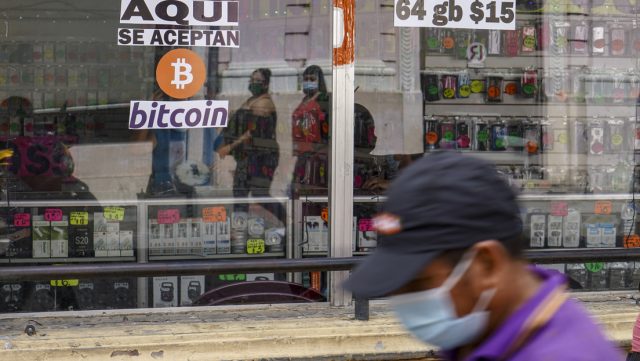The dates played a trick on El Salvador’s Minister of Finance, Alejandro Zelaya. Although last week, the holder of the portfolio predicted that the expected issuance of bitcoin bonds would take place between March 15 and 20, the complex world panorama has taken away his confidence.
Interviewed by local television, Zelaya acknowledged that the Nayib Bukele administration’s bet – with which he hopes to raise at least 1,000 million dollars in cryptocurrencies – should be rescheduled: «I think it’s not the time», he said. The next date is still an enigma, informed RT.
«It will not be in two or three days», admitted the minister, who considered that the ideal date for the launch of the offer could be in the month of April. However, this time he did not risk putting a precise date: «The ideal is to launch the offer in the first semester», he said.
The minister pointed out that the uncertainty about the date has to do with the uncertainty in the market, marked by the complex situation between Russia and the Ukraine. For now, the Salvadoran administration has focused on launching measures to alleviate the impact of the rise in fuel prices throughout the economy, while continuing for financial alternatives.
However, in Zelaya’s opinion, the decision cannot be postponed indefinitely this year: “At the latest, in September. If it’s not done by then, it is difficult to launch, unless you have pre-funded», he pointed out.
The estimates of El Salvador, in the words of his minister, are ambitious. According to Zelaya, there are already a large number of interested parties in the offer, which is why they predict an oversubscription of the papers (bonds) so that its placement reaches 1.5 million dollars.
Uncertainty with bitcoin
Although it is a heavy factor, the world political situation is not the only variant that the Bukele government has to deal with. For months, there have been questions about the bitcoin policy, ranging from the alleged opaque management of purchase and sale operations, to the concern on the part of the risk rating agencies due to the volatility of that cryptoactive.
Added to this uncertainty, are the calls for attention from the International Monetary Fund (IMF), which has repeatedly urged Bukele to annul the declaration of bitcoin as the second legal tender in the Central American country.
According to the Fund, the risks are primarily to financial stability because banks “could be exposed to massive fluctuations in crypto asset prices”; for the integrity of money flows, because bitcoin could be an open door for illicit exchange, tax evasion and financing of terrorism «due to the anonymity they provide»; and for consumer protection, since people who save in that digital currency «could lose wealth due to large changes in value».
But in El Salvador’s plans there is no going back with bitcoin, much less with bonds. On Tuesday, Zelaya acknowledged that these papers (bonds) «are going to be channeled through LaGeo», an autonomous company that generates energy from geothermal plants in the country.
That decision has been questioned by several voices in the country, who allege that a company like LaGeo would not be able to support a bond of 1,000 million dollars. According to an analysis by the Financial Times, the income of these subsidiaries in 2021 was 136 million dollars, with a profit of 36 million and assets of 773 million, not counting a long-term debt of another 200 million, so the Government would have to transfer to the company «every year to finance the interest payments on the bonds».
According to that same analysis, the objective behind the fact that the issue of those bonds will not be carried out directly by the Government but through LaGeo is that, in the event of a sovereign debt default, the country can continue to respond to crypto bondholders and continue to turn to those investors to seek financing.
When asked about this matter, Zelaya responded: “Let’s be honest. If it is issued by LaGeo or by the Salvadoran State, in the end it is a debt of the State. Because who owns LaGeo? It belongs to the CEL [Hydroelectric Commission of the Lempa River]. Yes, it is autonomous, but if CEL goes bankrupt, who is going to save it? Well, the State».
The sensitive point of these papers (bonds) is that, since they are issued by a corporation and not by the State, they do not have the attributes of sovereign debt. The Finance Minister assured that this matter «is somewhat indifferent» because the Government will treat it as a bond with public debt guarantees.
Although the technical prospectus of the bond has not yet been released and the approval of a battery of laws in the Legislative, sent by Bukele to encourage financial «freedom» in El Salvador, is pending, what is known so far is that this bond will be placed for a duration of 10 years, at a rate of 6.5%, a yield three times lower than that offered by traditional sovereign debt bonds in the international market.
The Government has promised that the resources obtained from the issue of these bonds will have two destinations: the construction of Bitcoin City and the purchase of more crypto assets. But as global uncertainty grows, the ambitious plans of the ‘millennial president’ are on hold.



